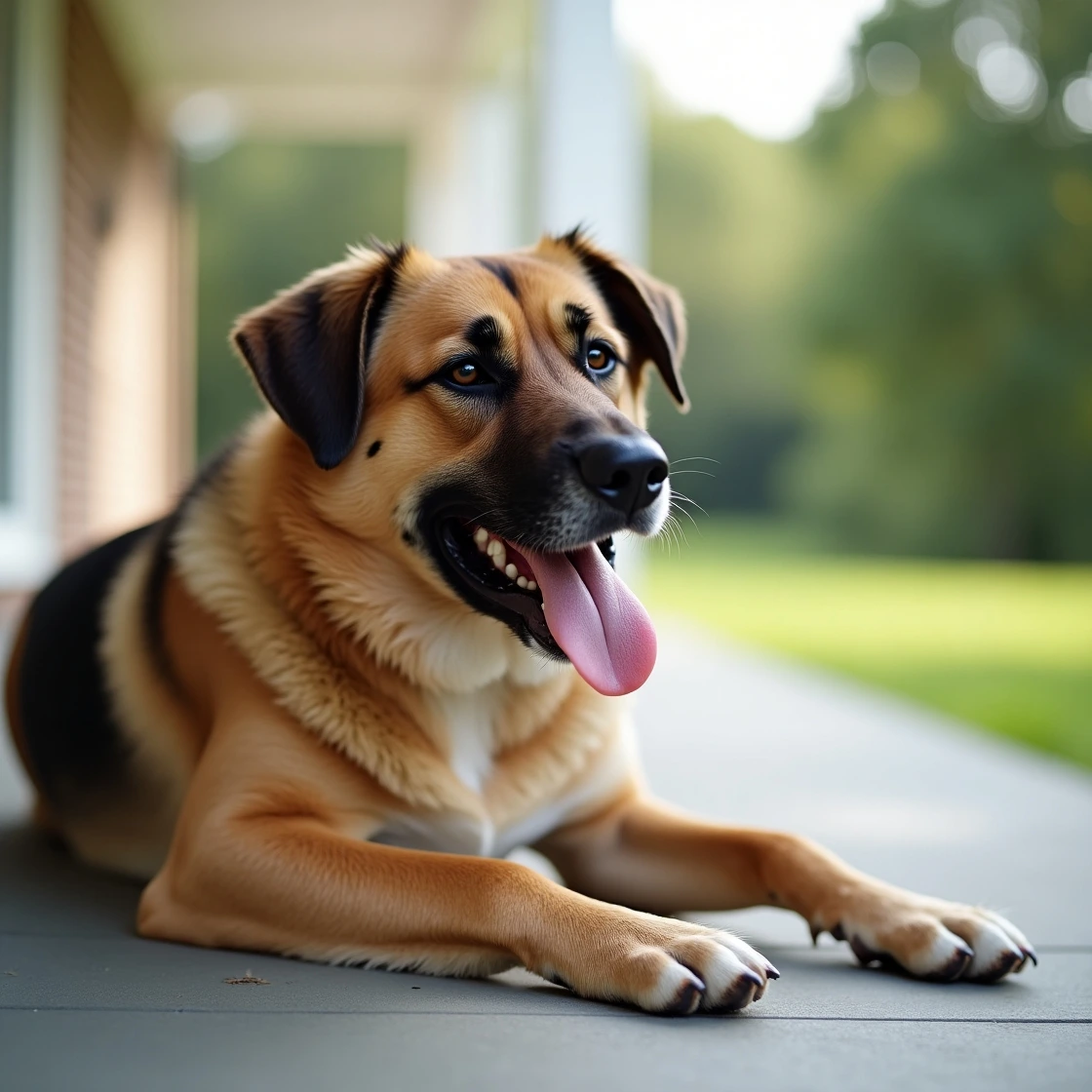Have you ever noticed your dog breathing fast and wondered if something is wrong? While it’s normal for dogs to pant after exercise or during hot weather, rapid breathing at rest can sometimes be a sign of an underlying issue. In this article, we’ll explain the common reasons behind fast breathing in dogs, when to be concerned, and what you can do to help.
Is It Normal for Dogs to Breathe Fast?
Understanding Normal Dog Breathing Rate
A healthy dog at rest typically breathes between 10 to 35 times per minute. If your dog is breathing faster than that, it’s worth paying attention to their behavior and environment.
Factors That Influence Breathing Speed
- Recent activity or play
- Warm temperatures
- Excitement or stress
- Dreaming during sleep (REM cycle)
Common Reasons Why Dogs Breathe Fast
After Exercise or Play
Just like humans, dogs breathe faster to cool down and recover after physical activity. This is usually normal and should slow down within a few minutes.
Stress, Fear, or Anxiety
Fast breathing can be a sign that your dog is anxious or scared, especially during thunderstorms, vet visits, or loud noises like fireworks.
Hot Weather or Overheating
Dogs don’t sweat like we do. Instead, they pant to release heat. Rapid breathing in hot weather may signal overheating or even heatstroke, which can be dangerous.
Sleeping or Dreaming
Dogs can breathe fast while sleeping, especially during the REM (rapid eye movement) stage of sleep. This is normal, but if breathing seems labored, observe closely.
Health Issues
Sometimes, fast breathing is a symptom of a medical problem, such as:
- Heart disease
- Lung conditions like pneumonia
- Pain or injury
- Anemia or other systemic issues
When Fast Breathing Is a Medical Emergency
Warning Signs to Watch For
Contact a vet immediately if your dog is breathing fast and shows these signs:
- Blue or pale gums
- Difficulty standing or walking
- Loss of appetite
- Collapse or unconsciousness
When to Call the Vet
If the rapid breathing continues for more than a few minutes, or is accompanied by any of the symptoms above, it’s best to get professional help.
How to Help a Dog That’s Breathing Fast
First Aid at Home
Move your dog to a cool, shaded area. Offer fresh water. Avoid stress and physical activity until they recover.
Keeping Your Dog Calm and Comfortable
Use calming techniques like soft music, a quiet environment, or anxiety vests. You know your dog best—help them feel safe and secure.
Preventing Future Episodes
- Avoid intense exercise during hot weather
- Keep up with regular vet check-ups
- Use flea/tick preventatives and monitor breathing patterns
Final Thoughts on Fast Breathing in Dogs
Fast breathing in dogs isn’t always a cause for concern—but it can be. Pay attention to when and how it happens. If you’re ever in doubt, a call or visit to your vet is the safest option. Your furry friend depends on you to notice when something isn’t right.
FAQs
Why is my dog breathing fast while sleeping?
It’s normal during REM sleep. However, if it looks strained or continues for long periods, consult your vet.
Should I worry if my dog is breathing fast?
Occasional fast breathing is normal, but if it happens frequently or comes with other symptoms, you should be concerned.
Can stress cause fast breathing in dogs?
Yes, stress or anxiety can cause rapid breathing. Look for other signs like pacing, whining, or trembling.
What is a normal breathing rate for dogs?
Between 10 to 35 breaths per minute when at rest.
How can I calm my dog if it’s breathing fast?
Keep them in a quiet, cool area, speak softly, and avoid stimulating activities until they’re calm.
About Author

Milan Gami
Milan Gami is an SEO expert and passionate dog lover. With years of experience in digital marketing, Milan specializes in creating high quality, SEO-optimized content that provides valuable information to pet owners. His articles cover various topics related to dog care, including nutrition, training, and healthy treats for pets. When he’s not working on SEO strategies, Milan enjoys spending quality time with his own furry friends and learning about the best practices for dog health and wellness.

